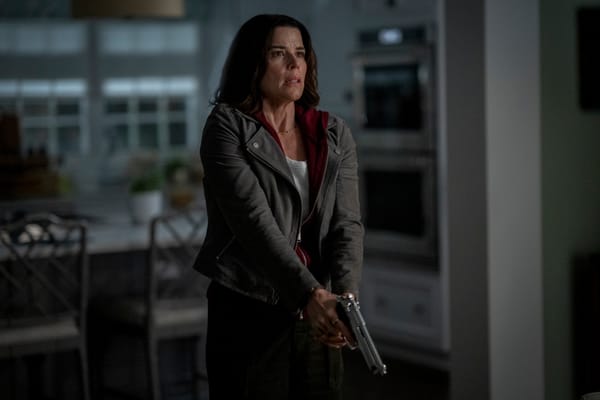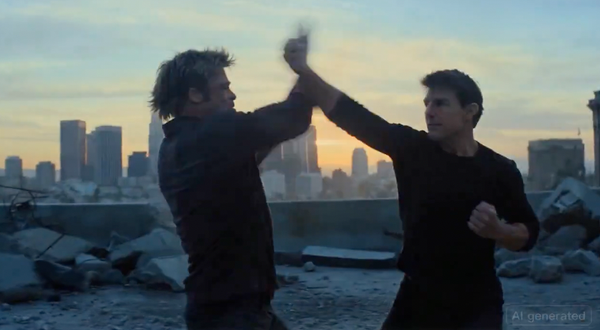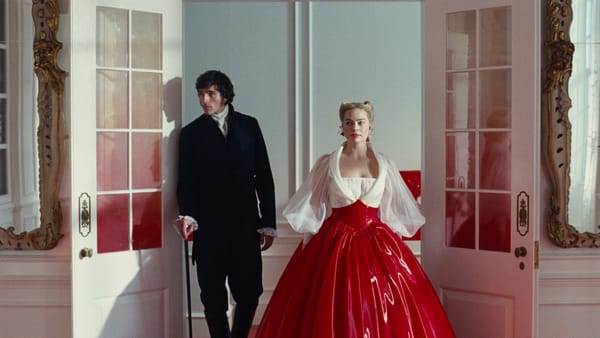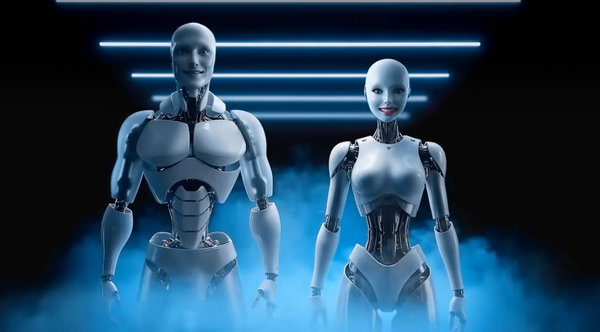Cannes 2025 Dispatch #1: Early Festival Highlights
Stephen David Miller reports live from the Cannes Film Festival about Eddington, Mission Impossible: The Final Reckoning, and other notable debuts
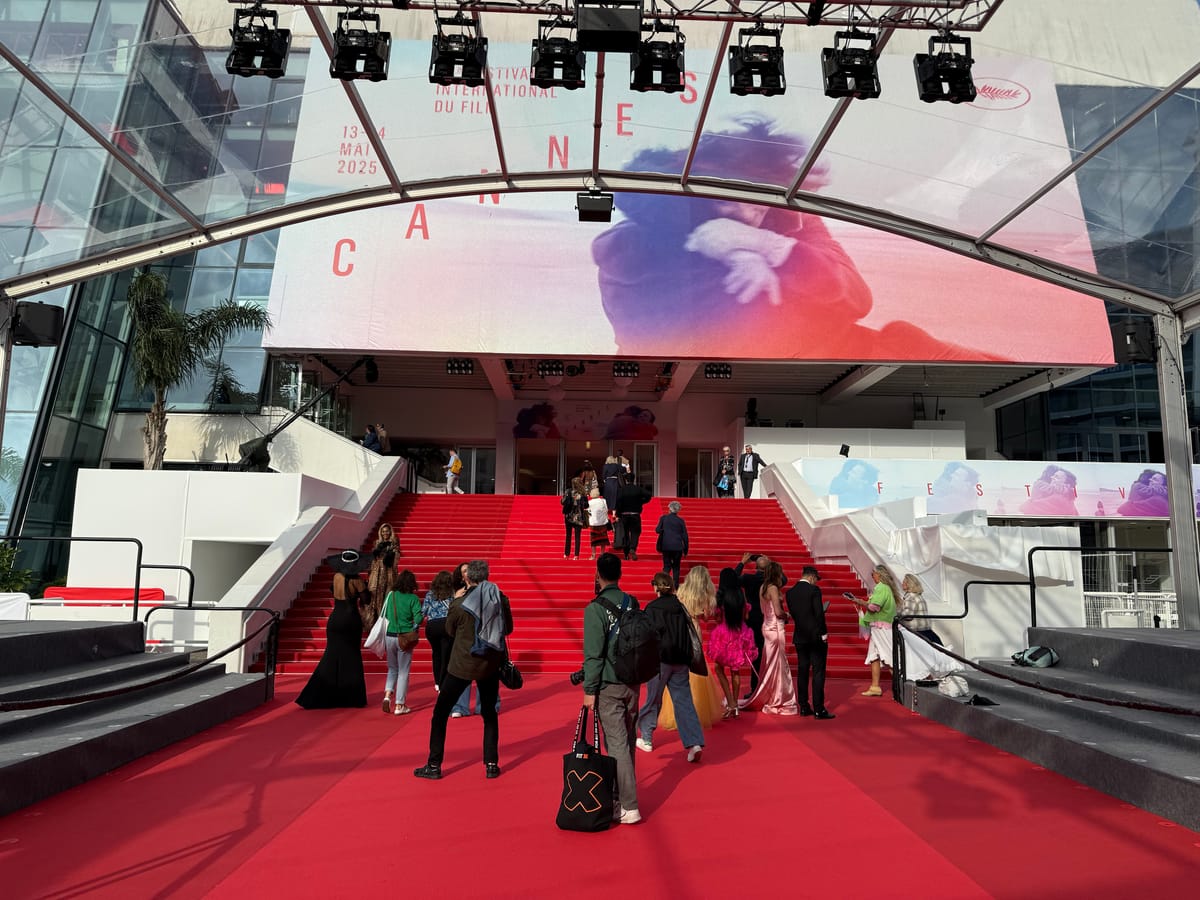
Bonjour, bonsoir, or bon-whatever-timezone-my-brain-is-in, Decoding Everything readers! As David teased in his previous update, I’m on the ground at the French Riviera for the 78th Annual Cannes Film Festival, where I’ll be bringing you coverage via three written dispatches.
The primary reason to attend an event like this is to catch as many screenings as possible, and as the festival progresses, I’ll be sharing bite-sized reviews of a few of the highlights. But for better or worse, Cannes is much more than a movie delivery system: It’s a chaotic, confusing, invigorating rollercoaster, and everyone from critics to studio heads are strapped in for the ride. I believe it’s impossible to separate a film’s reception here from the dizzying context it’s received in. The same intoxicating energy that catapults Anora from a would-be indie darling into an awards season juggernaut, also compels Netflix to shell out $12M for Emilia Pérez. So while my focus will be on the movies, I’ll also sprinkle in some details about the experience writ large to give you a taste of that energy. To get a sense of the format of these write-ups, and the basics of how the festival is structured, I’d encourage you to take a peek at last year’s introductory post.
This is my fifth time attending the festival, and in many senses, this year is par for the course. The main street is still closed every evening for a swarm of paparazzi, forcing thousands of black-tie-clad filmgoers to pack the sidewalk like sardines. Audiences are still split roughly fifty-fifty at each screening, between those for whom watching the movie is the ultimate goal and those for whom it’s a tax they must pay for the privilege of having said they went to Cannes. I still wake up every morning with my schedule in shambles, and go to bed each night surprised that it worked out in the end. I still haven’t managed to pronounce a single word of French well enough to be understood by a waiter without pointing at the menu. I’m still writing this under a thick fog of sleep deprivation.
Thanks for reading Decoding Everything! Subscribe for free to receive the latest updates.
Yet even by Cannes standards, this edition is shaping up to be particularly intense. I feel some added pressure this year, as does every regular I’ve chatted with thus far. Much of this is due to the lineup. Whereas every festival will have one or two impenetrable big-ticket events—your Tarantino, your Scorsese—this one is stacked to the gills with heavy-hitters. Virtually every day includes at least one extremely hyped premiere: Spike Lee, Wes Anderson, Ari Aster, Richard Linklater, Lynne Ramsay, Julia Ducournau, Bi Gan, and a dozen other festival darlings. Even the side tracks to the main festival, which typically act as a respite from the chaos, have their share of lightning rod events. The typically chill Un Certain Regard has directorial debuts from Kristen Stewart, Scarlett Johannson, and Harris Dickinson; a charming Taiwanese indie produced by Sean Baker can be found ten blocks away at Critics’ Week; Christian Petzold is screening a new film at the Directors’ Fortnight as I write this. Did I mention that new Cruise / McQuarrie joint that screened out of competition? It has never been more impossible to see everything you “simply have to see.”
This is, I must stress, a wonderful problem to have. It’s an absolute privilege to have even the chance of catching these films, and complaining about the mechanics of that process is like complaining about the WiFi on your yacht. Sure, booking tickets has become a hassle to put it lightly, but we’re in France! The sun is shining! There are more than enough excellent movies to go around! Seriously, what sort of tone deaf, navel-gazing, humble-bragging monster would start their Cannes coverage by—
I Hate The Cannes Ticketing System With a Fiery Passion and I Simply Must Tell You Why
So here’s the deal. When you get accepted to Cannes, you are given free entrance to the festival. Your badge allows you access to every screening room, in theory. But you are not guaranteed access to any individual screening. In years past, this access would come in the form of printed invitations if you were high profile or lucky, or a Last Minute Line for those who couldn’t snag one. Because many tickets went unused, those lines were useful for any non-red-carpet event. Grab a coffee, show up an hour before showtime, and the odds were in your favor.
However, after the pandemic this process went digital. Which is a great idea in principle! Tickets become available at a designated time each morning, depending on your badge. You peruse what’s available, click to see the details, tap “Book” if you want it, and it’s yours. Boom! No more sweaty, hourlong lines.
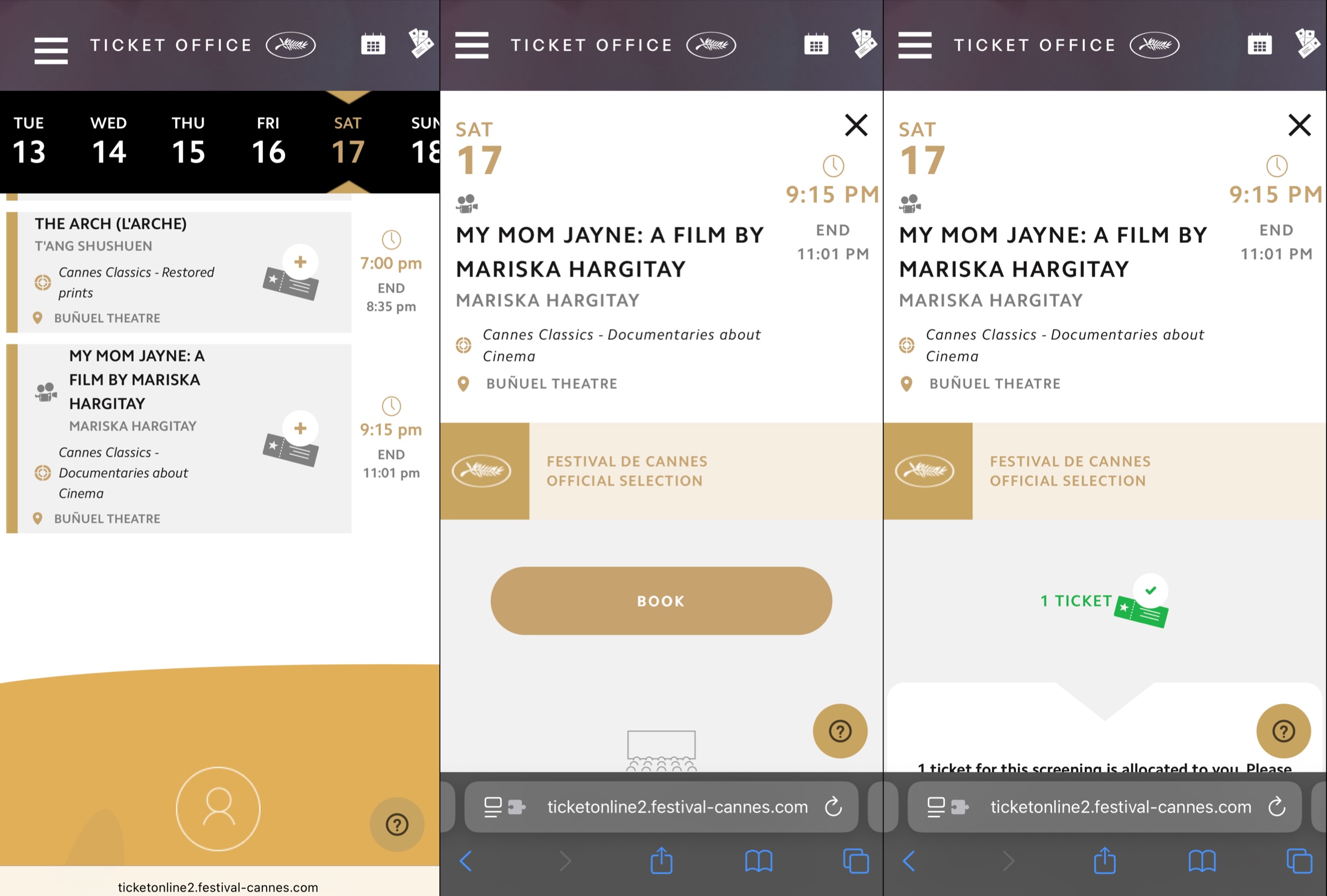
The problem? Many thousands of people are trying to do the exact same thing as you at the exact same time. So what was meant to be a more relaxed approach than standing in line, has instead turned every festival attendee into a manic high-frequency trader doing their best to shave milliseconds off the process. Nothing is available, and if it were it certainly wouldn’t be long enough for you to click two separate buttons! The only option is to cut out the middleman and go directly to the booking page, hitting refresh every couple of seconds and praying a “Book” button appears. At which point you have roughly 100 milliseconds for your thumb to react before it’s vanished.

This has always been a difficult process, but this year it’s something else entirely, and I strongly suspect the reason involves tech that rhymes with schmatGPT. Still, the organizers have been explicit about their zero tolerance policy for bots, and I care too much about future festivals to ignore them. So here I sit, tapping “refresh” with my fallible human thumbs for hours on end. I tap in bed as I go to sleep; I tap over espresso in the morning; in between the two, I dream only of tapping and failing. Yesterday I went for a hourlong run by the beach, and I can only assume it was lovely. I wouldn’t know, because my eyes were glued to my phone, tapping to the rhythm of my steps. Even while writing this paragraph, a voice in my head insists that I ought to be tapping.
Fortunately, with discipline over which screenings I attempt to book and the order in which I attempt them, I’ve still been able to cobble together a solid schedule that includes most heavy-hitters to date. It just goes to show you that even in the face of an unfeeling AI, the human will to survive knows no limits. All it takes is sweat, persistence, a willingness to physically risk your life and the life of pedestrians around you, and the reflexes to react in the blink of an eye.
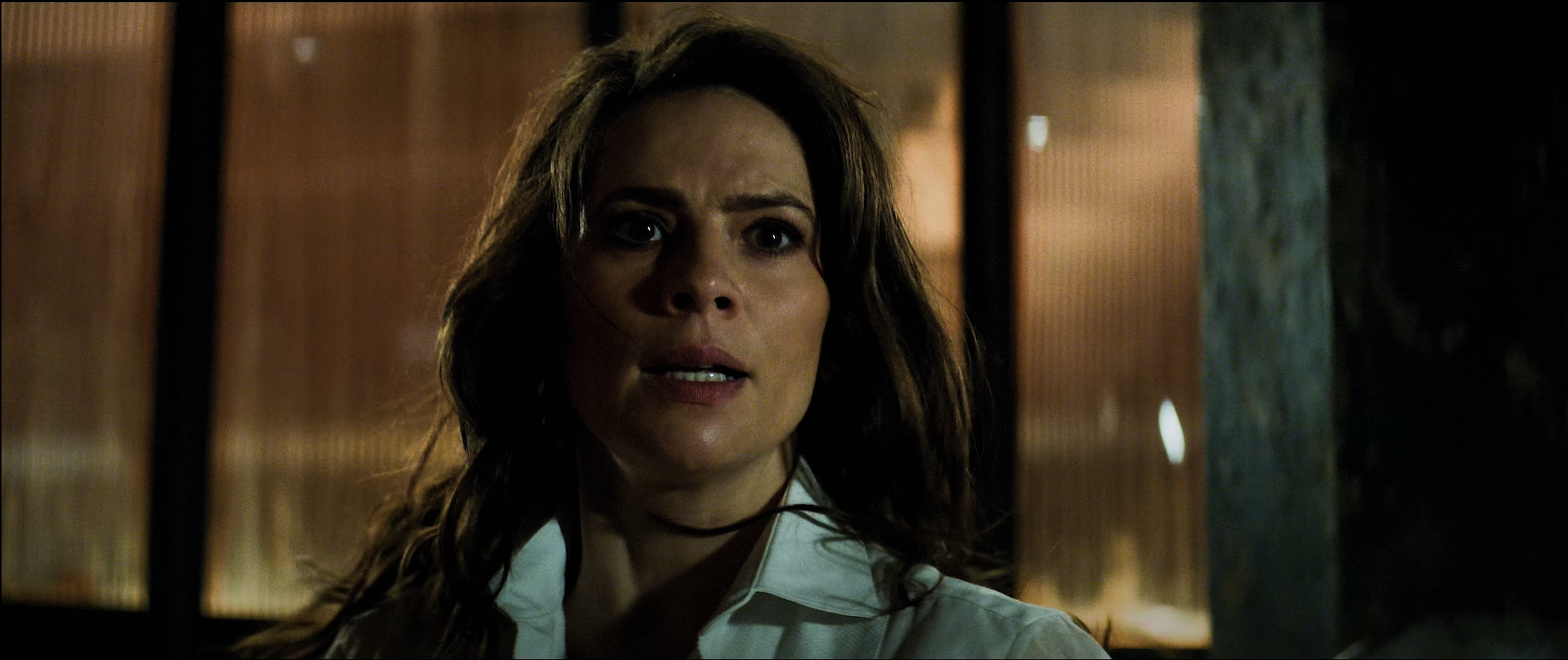
A Brief Note About Mission Impossible
The above was a vague and oblique reference to the fact that I was indeed able to tap my way into a screening of Mission Impossible: The Final Reckoning. Since numerous critics have already been given access to this film, including David Chen himself, I’ll keep my thoughts to a minimum: It was fine. It’s overlong, burdened with endless exposition and callbacks that missed far more often than they hit. In comparison to the wall-to-wall spectacle of Fallout, I’m puzzled how few major action sequences the filmmakers decided to put in this movie. There are two by my count, only one of which thrilled me as a viewer in the way I assume it thrilled the people who made it. Luckily, the sequence that worked—I’ll just say the word “plane” to minimize spoilers—happens to be one of the most jaw-dropping stunts I’ve ever seen put to screen. This alone makes MI8 a worthy send-off, though it’s a fairly tedious journey to get there.
Although I wasn’t a big fan of the movie, I very much enjoyed hearing about the process of making it! The afternoon before the premiere, I was able to catch a moderated discussion with Christopher McQuarrie that featured a very special “surprise” guest. I filmed a little snippet of that above.
Much like Cruise and McQuarrie, I too love movies. Let’s pivot to discussing a few which, unlike Final Reckoning, have remained exclusively at Cannes.
Early Festival Roundup: 5 Notable Premieres
Logistical nitpicks aside, I’ve been extremely impressed with the quality of this year’s lineup. Of the 14 films I’ve caught thus far, the majority have been great and worthy of your attention. But unlike a certain action filmmaker, I still believe in the value of brevity. To make things manageable, I’ll limit each of these dispatches to 5 films I found particularly interesting: major swings, surprise gems, and the occasional fumble. If I skip anything you were particularly excited for, don’t worry—I’ll include my full screening list when the festival is over, and will happily answer any questions in the comments.
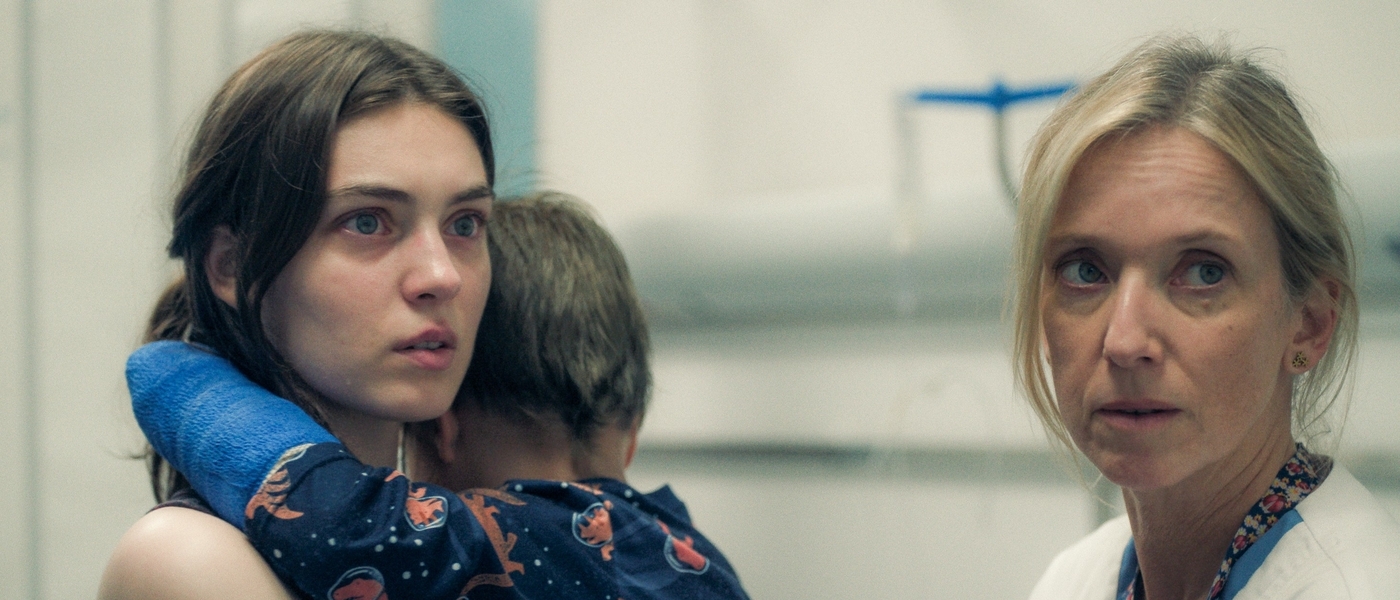
Adam’s Sake
Sometimes an uncertain schedule can be a blessing in disguise. After my first of many failures to nab a ticket to the red carpet, I made a last minute pivot to catch Adam’s Sake (L’Intérêt d’Adam), the opening film of the Critics’ Week festival. I came into Laura Wandel’s film with no expectations, and walked away emotionally gutted. The medical drama centers around a pediatric nurse Lucy (played by the great Léa Drucker), her young patient Adam (Jules Delsart) and his mother (Anamaria Vartolomei). Adam was brought into the hospital with severe malnutrition, and we open with his feeding tube being removed. He’s inconsolable. He misses his mother, and she insists on staying at his bedside—even as staff suspects her own neglect is to blame for his condition. What follows is an intense saga which unfolds nearly in real time, as Lucy struggles to tend to the situation while juggling the competing stressors of her job. As Lucy sees it, there are three parties she must tend to: Adam’s physical well-being, his mother’s mental health, and their continued existence as a family unit. But the bureaucracy around her, for understandable reasons, must only consider the safety of the child. This is a complex, naturalistic film, and like the best of the Dardenne brothers, it has no answers to offer. Just raw nerve authenticity and an insistence on the humanity of flawed individuals. It’s perfectly on brand for me; I adored it.
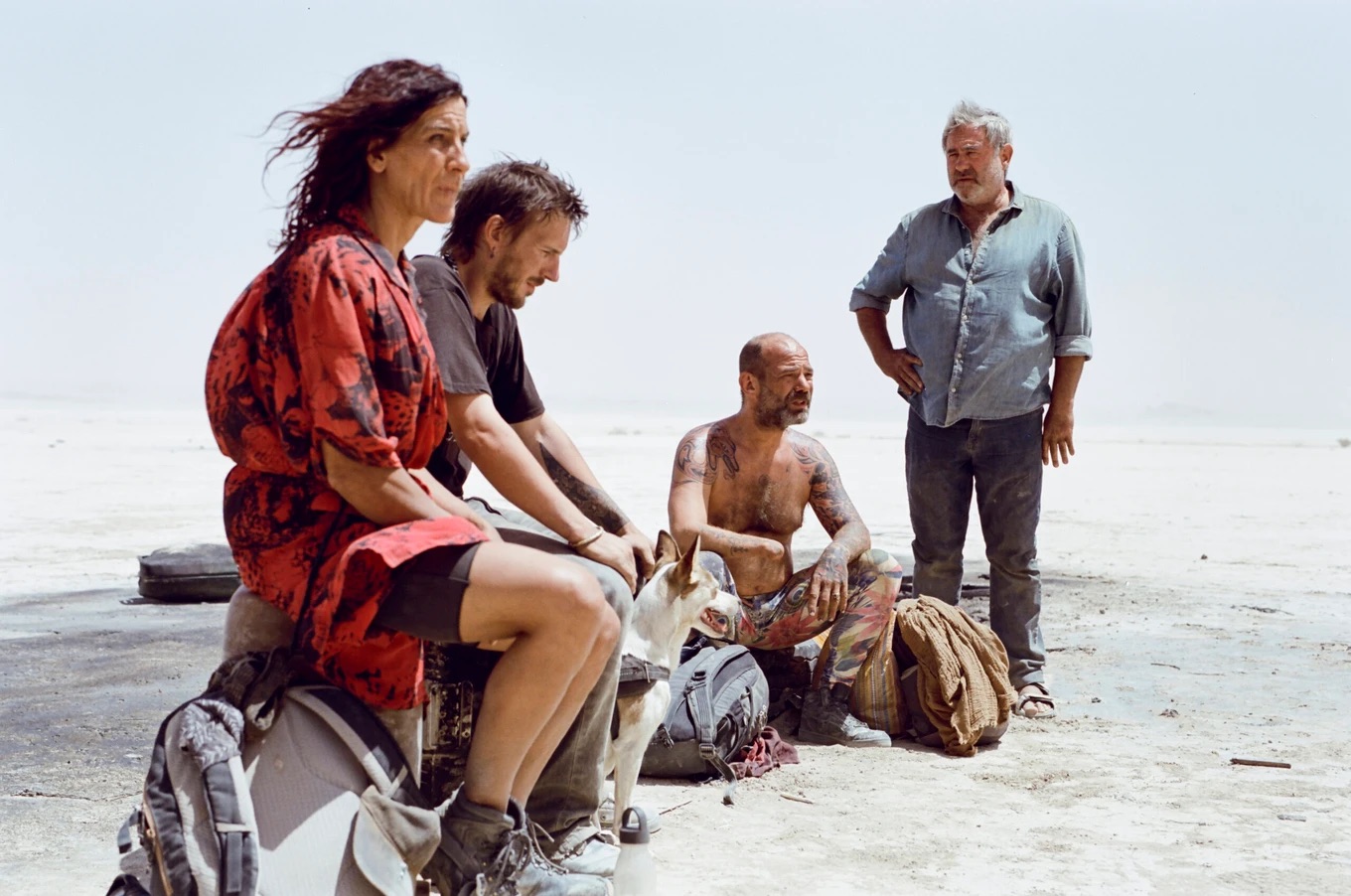
Sirat
By contrast, nothing about Oliver Laxe’s Moroccan rave odyssey, Sirat, resembles my brand in the slightest. I have no fondness for EDM. Despite years of pretending to appreciate William S. Burroughs, I rarely find psychedelic narratives very interesting. And few things are more unpleasant than being cornered at a party with a die hard Burning Man attendee. The first 15 minutes of this film are exclusively devoted to watching people dance in the desert, while a punishing bassline reverberates through the theater. I was steeling myself for a trollish provocation out of Harmony Korine’s playbook, or Mektoub, My Love: Intermezzo without the butts. But this wound up being a sneakily clever, shape-shifting narrative, and the longer I sit with it the deeper it burrows into my psyche. The synopsis is simple and tells you virtually nothing: A father and son travel from one rave to another in search of a missing person. What begins as an extended music video transforms into a naturalistic road trip, only to transform again into a mashup of a nightmare, a thriller, and a meditation on meaningless existence. This is The Wages of Fear by way of El Topo, and yes, I know that doesn’t make sense. I can only say that it’s rare for me to audibly gasp in a theater, and Sirat pulled it off half a dozen times. Whatever genre this is, it’s made a convert out of me.
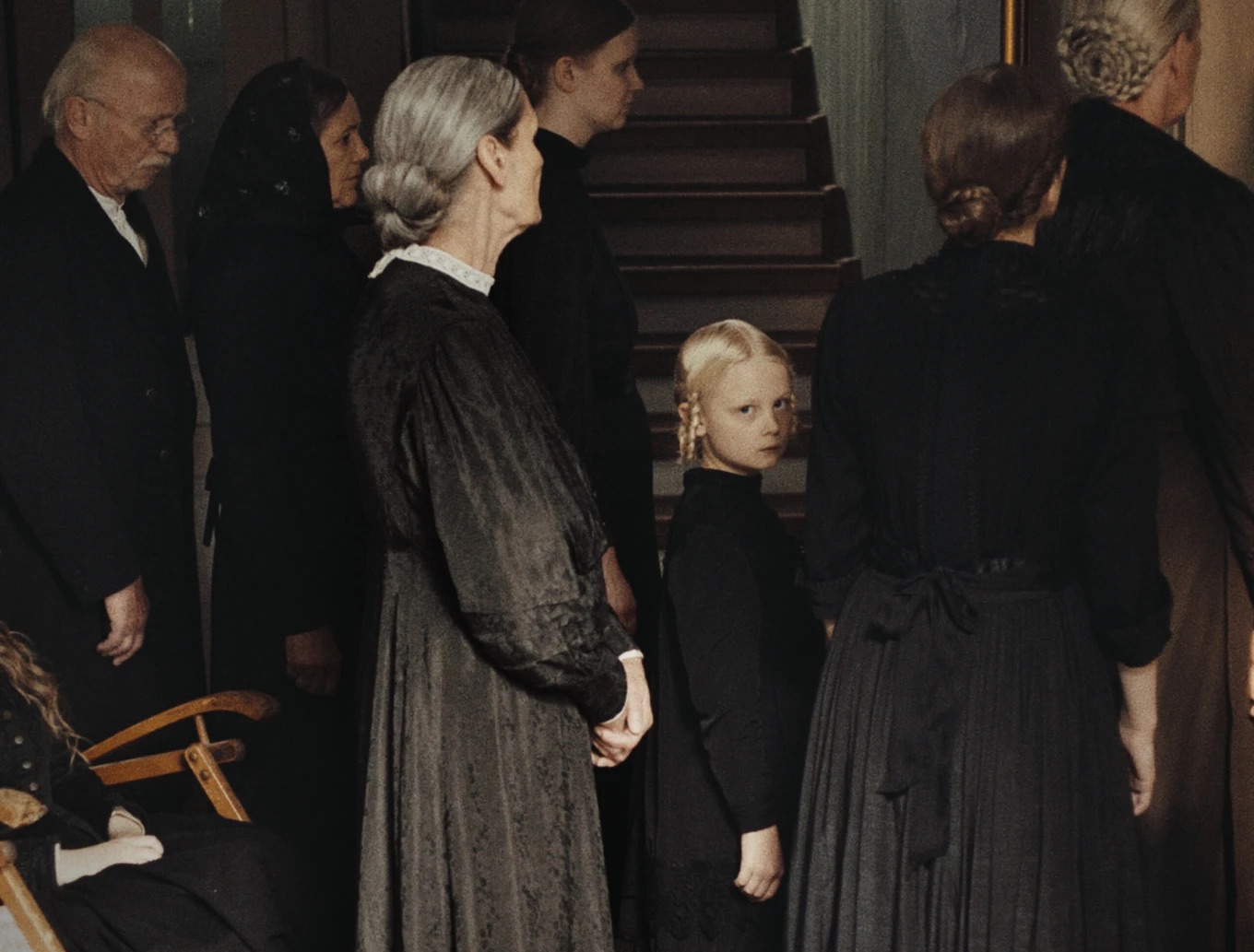
Sound of Falling
Another premiere that has continued to gnaw at me is Mascha Schilinski’s Sound of Falling. Here, again, is an experiential saga which throws you into the deep end with little to no exposition. In hindsight, it’s easy to describe the film as a drama about intergenerational trauma and abuse, but its nonlinear approach—or perhaps my jet-lagged-addled comprehension skills—kept me from understanding that structure at the outset. For the first hour, I experienced it instead as a disorienting collection of fragments: snapshots of childhood bouncing seemingly at random from a gloomy WWII-era estate to a lake with iPhone-using swimmers to a ranch style home in the 1970s or ‘80s. Yet even when I was lost, I was transfixed. Like Aftersun, there’s a haunted quality to the filmmaking here, an unmistakable tint of memory that hits you long before you understand the reason. But Schilinski isn’t aiming for understated realism; her mood is more ethereal, like a half-remembered, intrusive thought. This is eerie, unsettling stuff, told in a new filmic language it’s invented whole cloth. Everything feels damp and airless, pristine and rotten, suffocating save for a few moments of (to quote a repeated refrain) “warmth”. When the connections do reveal themselves and you’re able to take in the story as a whole, that accumulated unease transforms into a statement. I can’t say I know exactly what it says, but I can feel it in my bones.
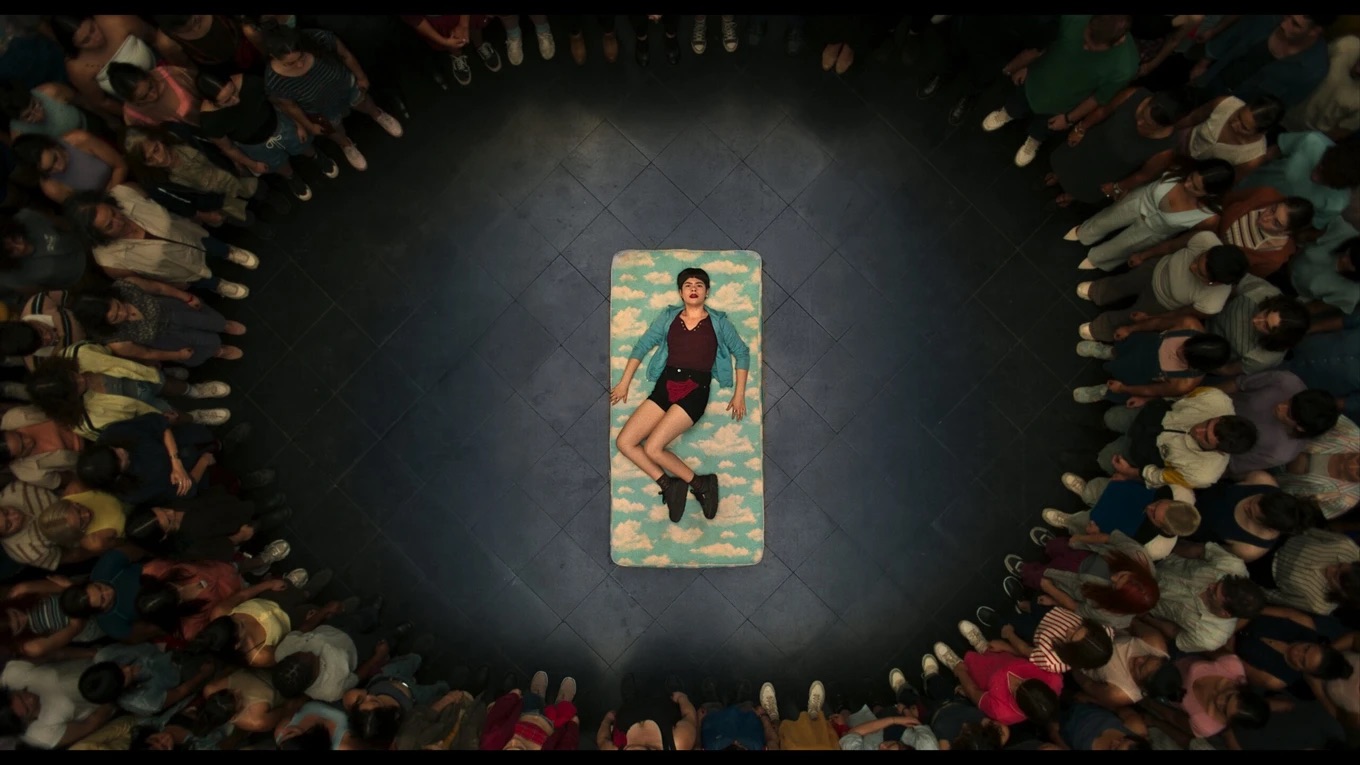
The Wave
There’s no mistaking what Sebastián Lelio is trying to say with The Wave (La Ola); his characters spend half the movie singing it. Having adored A Fantastic Woman, I was excited to catch whatever new film Lelio was presenting, and the subject matter seemed perfectly suited to his socially-conscious aesthetic: a wave of university protests against sexual assault in 2018 Chile. In a musical? What could possibly go wrong?! Unfortunately, I have a sneaking suspicion that I’ve just witnessed this year’s Emilia Pérez. Not because it’s a musical about a decidedly non-musical topic—though there are explicit lyrics here sure to make American audiences cringe, a la “penis to vagina.” My issue is that it’s all bombast, no substance. We are repeatedly told that our protagonist, Julia (Daniela López) is “using her voice” to speak out against her abuser. Multiple dazzling dance sequences, with intricate choreography and palpable emotion, are devoted to the subject. Never what she has to say, mind you, just the fact that she’s brave enough to say it. She’s igniting a fire, she’s forming a wave, she’s unleashing a flood, she’s roaring. What we rarely get a glimpse of is how she actually feels inside. The film makes repeated attempts to mock faux allyship, but I can’t shake the feeling that the entire spectacle is engaging in precisely what it’s criticizing: an empty fetishization of empowerment in the abstract. Unlike Emilia, The Wave at least has some self-awareness about this problem. Lelio scores major applause late in the runtime by holding a mirror to himself, and the final 20 minutes or so interrogate its limitations in a few genuinely interesting ways. Still, for all its charms and good intentions, this struck me as much too little too late. I predict if this comes to the States, it will be an unmitigated disaster.
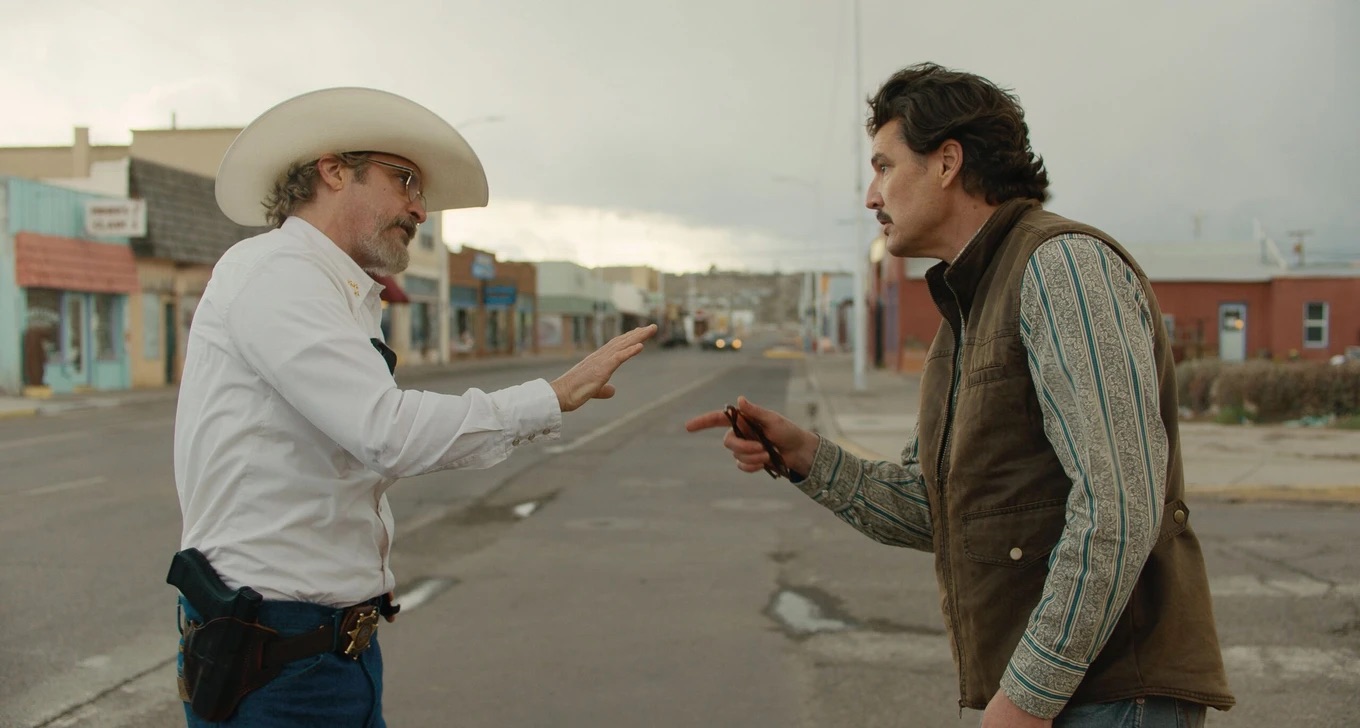
Eddington
When it comes to Cannes premieres that will eventually polarize a general viewing public, none can hold a candle to Eddington. Ari Aster’s latest is a Western-tinged satire about the spring of 2020, and the divisions that were accelerated by the pandemic. Think battles over masking, the “law and order” backlash to Black Lives Matter protests, QAnon, Antifa, and performative Instagram solidarity. Everything that swirled in our collective unconscious, however flimsy or imagined, is as literal here as the anxieties of Beau Is Afraid’s protagonist. If Beau was criticized for handling political concepts with reckless ambiguity, I can only imagine the hellfire that will rain down on Aster this July. Here the politics are front and center, and though the events are clearly heightened, it’s never played as fantasy. I can’t argue with anyone who hates this or decries it as deeply irresponsible. But personally? I found it cathartic and hilarious. Every touch, from the grammar of certain political slogans (“Your being manipulated”) to the clumsy language of well-meaning progressives (a white protestor giving a rousing speech about why he should sit back and listen) rang as pitch perfect and true to the moment we lived through: One where a failure to communicate drove us all deeper into our bubbles. This is less a narrative with a message than it is a work of absurdist standup comedy, teasing out uncomfortable thoughts designed to make us squirm. As with far too many standup comics, it is extremely possible this brand of humor will age like milk, or that some terrible personal viewpoints of the director will rise to the surface and accelerate that process. For now, though, I’m delighted that it exists. I can’t wait to see what a wider audience will make of it.
And with that, it’s time to race to my next screening. Tune in a few days from now for reviews of new films by Wes Anderson, Richard Linklater, Lynne Ramsay, Kristen Stewart, and more.
Stephen David Miller is the co-host of The Spoiler Warning podcast.
